What Happened In The Civil War During 1861?
The Civil War began in 1861 when the Rebels fired upon Fort Sumter. Some other major events of 1861 are: Abraham Lincoln is inaugurated as the 16th president of the United States, the Southern states secede from the Union, the Confederate States of America’s government is formed with Jefferson Davis as its president, Robert E. Lee resigns from the United States Army and decides to fight for the South, both North and South begin to fill their armies by calling for volunteers, United States General-In-Chief Winfield Scott proposes his Anaconda Plan, the Border States are established, the First Battle of Bull Run (First Manassas) is fought, George B. McClellan becomes commander of the Army of the Potomac, Ulysses S. Grant has command of Federal troops in southeastern Missouri and southeastern Illinois, William Tecumseh Sherman has a short time of command in the eastern and central parts of Kentucky, Ball’s Bluff is a Union disaster, Winfield Scott is replaced by George B. McClellan as general-in-chief, and the Trent Affair causes diplomatic problems for the Union.
January
“I cannot comprehend the madness of the times. Southern men are theoretically crazy. Extreme northern men are practical fools, the latter are really quite as bad as the former. Treason is in the air around us every where & goes by the name of Patriotism.”
… Words of Thomas Corwin to Abraham Lincoln on January 16, 1861.
1–6 – During this stretch of dates Southern state militias are busy. Fort Pulaski in Savannah, Georgia, two forts and an arsenal in Alabama, and a United States Arsenal in Apalachicola, Florida, are all occupied by state militias.
5 – A caucus is held by United States senators from six gulf states and Arkansas. Their conclusion is that reconciliation is only a waste of time, and that the slave states should secede and form a confederacy.
5 – The Star of the West is loaded with 200 troops and provisions as it leaves New York. The ship is sailing to Fort Sumter in Charleston Harbor, South Carolina to provide relief for the troops on duty there.
8 – Jacob Thompson resigns his position as the Mississippi Secretary of the Interior.
9 – The Star of the West has made its way to the South Carolina coast, but rebel fire prevents the ship from entering Charleston Harbor, it returns to New York.
“The first gun of the new struggle for independence [if struggle there is to be] has been fired, and Federal power has received its first repulse.”
… An excerpt from an editorial by the Charleston Mercury on January 10, 1861.
9 – Mississippi secedes from the Union.
10 – Florida secedes from the Union.
11 – Alabama secedes from the Union.
19 – Georgia secedes from the Union.
“The day that Georgia was declared out of the Union was a day of the wildest excitement in Rome [Rome, Georgia]. There was no order or prearrangement about it all, but the people met each other and shook hands and exchanged congratulations over it and manifested the utmost enthusiasm. Of course, a great many of the older and wiser heads looked on with a great deal of foreboding at these rejoicings and evidence of delight, but the general feeling was one of excitement and joy.”
… Georgian Mary A. Ward speaking before Congress after the war.
19 – In an attempt to stave off secession, the state of Virginia proposes a national peace conference.
21 – The United States Senate loses five more members from the South (others had resigned in December, 1860) as they resign. Notable among these resigning senators is Jefferson Davis of Mississippi.
26 – Louisiana secedes from the Union.
29 – After losing five states to secession, the new state of Kansas is admitted as the thirty-fourth state of the Union. The Kansas state constitution prohibits slavery.
February
“Upon my weary heart was showered smiles, plaudits, and flowers, but beyond them, I saw troubles and thorns innumerable. We are without machinery, without means, and threatened by a powerful opposition; but I do not despond and will not shrink from the task imposed on me.”
… Jefferson Davis, the provisional president of the Confederate States of America, writes to his wife, Varina, in February, 1861.
1 – Texas secedes from the Union.
“I am for the Union without any ‘if.’”
… Unlike others in his state, Texas Governor Sam Houston was not in favor of secession.
4 – Virginia’s national Peace Convention opens in Washington, D.C. with former President John Tyler presiding. There are 131 delegates from 21 states in attendance, but there are no delegates present from the seceded states. The convention is boycotted by states of the Deep South.
4 – The six seceded states begin to organize as they meet at a convention in Montgomery, Alabama to create their new government. The seceded states at this time are: South Carolina, Florida, Alabama, Georgia, Mississippi, and Louisiana.
8 – At the Montgomery convention, the seceded states adopt a Constitution for their provisional government.
9 – The provisional Confederate Congress at Montgomery elects Jefferson Davis of Mississippi as the provisional Confederate President, and Alexander Stephens of Georgia as the Confederate provisional Vice-President.
“Mr. Davis is a man of slight sinewy figure, rather over the middle height, and of erect, soldierlike bearing. He is about fifty-five years of age; his features are regular and well-defined, but the face is thin and marked on cheek and brow with many wrinkles, and is rather careworn and haggard. One eye is apparently blind, the other is dark, piercing, intelligent.”
… A description of Jefferson Davis by William Russell of the London Times.
“You cannot transform the negro into anything one-tenth as useful or as good as what slavery enables them to be.”
… Words of Jefferson Davis, the provisional president of the Confederate States of America. February, 1861.
9 – A secession convention up for vote in Tennessee is rejected by nearly ten thousand votes.
10 – In Springfield, Illinois, a tall man named Abraham Lincoln leaves on his journey to Washington, D.C., and his place in history.
13 – The Electoral College confirms Abraham Lincoln’s election as President of the United States.
15 – Now that it has provisional President Jefferson Davis and provisional Vice-President Alexander Stephens, the Montgomery, Alabama Confederate convention acts as a provisional Congress and passes a resolution to take Union-held Fort Sumter in Charleston Harbor, South Carolina and Fort Pickens in Pensacola Beach, Florida. The resolution says that if necessary, force can be used to take these forts.
18 – Jefferson Davis is inaugurated as the provisional President of the Confederacy.
“The man and the hour have met. Prosperity, honor and victory await his administration.”
… Fire-eater William Lowndes Yancy introducing Jefferson Davis to an enthusiastic crowd. Yancy was one of the South’s most vocal proponents for secession.
23 – Abraham Lincoln completes his journey from Springfield, Illinois when he arrives in Washington, D.C., he has many challenges awaiting him.
March
“The attempt to break up this Union is the most atrocious piece of political wickedness the world ever saw, and it is very, very bitter to have to accept the fact that the attempt has succeeded…. Surely no man ever assumed the reins of government beset by such complicated and oppressive difficulties as have surrounded you.”
… A letter to Abraham Lincoln from Orville H. Browning. March 26, 1861.
1 – A setback for Virginia’s national Peace Convention as its proposals are refused for consideration by the United States Congress. There is no compromise reached by the convention.
2 – The Morrill Tariff Act is passed by the United States Congress. This was a very protective tariff and the South had long opposed it.
4 – Abraham Lincoln is inaugurated as the sixteenth president of The United States.
“It is safe to assert that no government proper ever had a provision in its organic law for its own termination.”
“We are not enemies, but friends. We must not be enemies. Though passions may have strained, it must not break, our bonds of affection. The mystic chords of memory, stretching from every battlefield and patriot grave to every living heart and hearthstone all over this broad land, will yet swell the chorus of the Union, when again touched, as surely they will be, by the better angels of our nature.”
… Both quotes from President Abraham Lincoln’s First Inaugural Address.
4 – Major Robert Anderson reports that food is running short at Fort Sumter in Charleston Harbor, and this may cause an evacuation of the fort.
“The little garrison in its present position presses on nothing but a point of pride, we are probably soon to be involved in the fiercest of human strife, a civil war.”
… Jefferson Davis.
5 – President Abraham Lincoln completes his cabinet. It consists of:
Secretary of State – William H. Seward
Secretary of Treasury – Salmon P. Chase
Secretary of Navy – Gideon Welles
Secretary of War – Simon Cameron
Secretary of Interior – Caleb B. Smith
Attorney General – Edward Bates
Postmaster General – Montgomery Blair
6 – The new Confederacy completes its cabinet:
Secretary of State – Robert Toombs
Secretary of Treasury – Christopher G. Memminger
Secretary of Navy – Stephen R. Mallory
Secretary of War – Leroy P. Walker
Attorney General – Judah P. Benjamin
Postmaster General – John H. Reagan
6 – The Confederacy calls for 100,000 volunteers to serve for 12 months.
11 – The Confederacy’s Constitution is adopted and made permanent. The Confederate Constitution is closely modeled after the United States Constitution, but it differs by prohibiting the passing of any law impairing slavery.
15 – Montgomery Blair, President Lincoln’s Postmaster General, is the only member of the cabinet who advises Lincoln to reinforce Major Robert Anderson at Fort Sumter.
29 – President Lincoln’s cabinet now takes a stronger stance about the holding of Federal forts located in the South. Lincoln will not abandon Fort Sumter, he orders that preparations be made to send a relief expedition to Fort Sumter.
April
“The gauge is thrown down and we accept the challenge. We will meet the invader, and God and Battle must decide the issue between the hirelings of Abolition hate and Northern tyranny, and the people of South Carolina defending their freedom and their homes.”
… From an editorial in the Charleston Mercury.
4 – Abraham Lincoln orders a relief expedition be sent to Fort Sumter in Charleston Harbor, South Carolina.
8 – The relief expedition ordered by Abraham Lincoln departs from New York.
12 – The Civil War begins on Friday, April 12, 1861, at 4:30 a.m. as Confederate batteries bombard Fort Sumter. The Union garrison at Fort Sumter under command of Major Robert Anderson, returns fire.
“Gentleman, I will await the first shot and if you do not batter the fort to pieces about us, we shall be starved out in a few days.”
… Fort Sumter commander Major Robert Anderson’s reply to Colonel James Chesnut, Jr.,. Chesnut was bringing Confederate Brigadier General Pierre Gustave Toutant Beauregard’s demands to Anderson.
“There was a sound of stir all over the house, pattering of feet in the corridors. All seemed hurrying one way, I put on my double gown and a shawl and went too. It was to the housetop. The shells were bursting…. The regular roar of the cannon—there it was…. The women were wild there on the housetop,. Prayers came from the women and imprecations from the men. And then a shell would light up the scene…. We watched up there, and everybody wondered that Fort Sumter did not fire a shot.”
… Mary Chesnut was living in Charleston, South Carolina when Fort Sumter was bombarded by the Confederates and she kept a diary of the Civil War from its start to its end. Her husband was Colonel James Chesnut, Jr., an aide to Confederate Brigadier General P. G. T. Beauregard.
13 – After 34 straight hours of fire from the Confederate batteries, Major Robert Anderson surrenders Fort Sumter.
“Our Southern brethren… have attacked their father’s house and their loyal brothers. They must be punished and brought back, but this necessity breaks my heart.”
… United States Army Major Robert Anderson, garrison commander at Fort Sumter.
15 – President Abraham Lincoln proclaims a “state of insurrection” and calls for 75,000 volunteers who are to serve for ninety days. By now, the Confederacy has now raised 60,000 volunteers after its call for 100,000 volunteers on March 6.
“Father and I were husking out some corn. We could not finish before it wintered up. When William Cory came across the field he was excited and said, ‘Jonathan, they have fired upon and taken Fort Sumter.’ Father got white and wouldn’t say a word.
“William said, ‘The President will soon fix them. He has called for 75,000 men and is going to blocade thier called ports, and just as soon as those fellows find out that the North means business will get down off thier high horse.”
… Theodore Upson was a sixteen-year-old farm boy in Indiana when the Confederates fired on Fort Sumter. Upson would enlist and fight for the Union and serve under Grant and Sherman. The reader can see that Theodore’s father, Jonathan, is fearful of what is to come. (Please note that the spelling errors in this quote are Theodore Upson’s.)
17 – In the wake of President Lincoln’s call for volunteers, a Virginia convention votes for an ordinance of secession. The most important Upper South state has seceded from the Union.
18 – Virginian Robert E. Lee is offered command of the Federal armies.
18 – The Harpers Ferry arsenal is abandoned by its Union garrison.
19 – The 6th Massachusetts Regiment is answering President Lincoln’s call for volunteers when it clashes with a mob while traveling through Baltimore to Washington. Twelve citizens and four soldiers are killed. Confederate sympathizers tear down railroad bridges and telegraph lines connecting to Washington. Maryland is a slave state with support for the South, but it will remain in the Union as one of four Border States.
19 – President Lincoln proclaims that Southern ports from South Carolina to Texas are to be blockaded. Throughout the Civil War, this naval blockade will weaken the South’s economy, but blockade runners and privateers will have some success bringing needed provisions to Southern ports.
20 – Robert E. Lee resigns from the United States Army. Lee has decided that his loyalty belongs to his home state of Virginia.
20 – The seceded state of Virginia takes over the United States armory at Harpers Ferry, and the Gosport Naval Yard in Norfolk. The Gosport Naval Yard is the largest facility located in the South for shipbuilding and repair.
21 – International trade in slaves has been illegal in the United States since 1808, but on this date the U.S.S. Saratoga takes the Nightingdale which is carrying a cargo of 961 slaves. The Deep South has been illegally importing slaves for a long time and its domestic slave trade will continue even after the start of the Civil War.
27 – Included now in President Lincoln’s blockade are ports in North Carolina and Virginia.
29 – The Women’s Central Association for Relief is formed at the Cooper Institute in New York City. Its purpose is the coordination of the many small relief groups now created, and being created. The United States Sanitary Commission will spring from the Women’s Central Association for Relief.
May
3 – Abraham Lincoln calls for 42,000 three-year army volunteers and 18,000 sailors. The regular army also expands in manpower by 22,714.
“My first uniform was a bad fit; My trousers were too long by three or four inches; the flannel shirt was coarse and unpleasant, too large at the neck and too short elsewhere. The forage cap was an ungainly bag with pasteboard top and leather visor; the blouse was the only part which seemed decent; while the overcoat made me feel like a little nubbin of corn, in a large preponderance of husk. Nothing except “Virginia Mud” ever took my ideas of military pomp so low.”
… A young recruit from Massachusetts named Warren Lee Goss, describes his new army uniform as he becomes a soldier in Mr. Lincoln’s Army.
3 – United States General-In-Chief Winfield Scott proposes his “Anaconda Plan,” it will become an effective and essential part of the Union’s strategy to defeat the South.
“We rely greatly on the sure operation of a complete blockade of the Atlantic and Gulf ports soon to commence. In connection with such a blockade, we propose a powerful movement down the Mississippi to the ocean, with a cordon of posts at proper points… the object being to clear out and keep open this great line of communication in connection with the strict blockade of the seaboard, so as to envelope the insurgent states and bring them to terms with less bloodshed than by any other plan.”
… Winfield Scott writing to George B. McClellan in May, 1861. Here Scott is describing his Anaconda Plan, which became an important strategy for the North.
6 – Arkansas secedes from the Union.
8 – Confederate President Jefferson Davis signs a bill that allows for the signing-up of 400,000 more volunteers for either three-years or for the duration of the war. A strong response of new volunteers follows.
“Many a strong man quivered with emotion and tears fell from eyes unused to weep! We watched the cavalrymen as they mounted, whirled into line, waved their hats and galloped out of the night, leaving aching hearts to mourn their departure. They belonged to the Army of Northern Virginia and were bound for West Virginia.”
… Alansa Rounds Sterrett’s diary entry of May 13, 1861. Alansa lived in Augusta County, Virginia and here she is describing the scenes and emotions as Southern men depart for the war.
10 – There are riots in St. Louis, Missouri. Captain Nathaniel Lyon and his troops march captured pro-Southern militia through the streets of St. Louis, enraging civilians sympathetic to the South. The result is twenty-eight civilians and two soldiers killed. After this, Missourians who were undecided, now choose to support secession.
12 – Baltimore, Maryland is returned to complete Federal control by Brigadier General Benjamin F. Butler and his troops.
13 – Queen Victoria proclaims British neutrality. Both the North and the South are recognized as belligerents by Great Britain. This means that Britain recognizes the South as having a separate status, something the United States did not desire.
17 – A Virginia secession convention vote adopts its Ordinance of Secession.
20 – North Carolina secedes from the Union. Of all the Confederate states, the Tar Heel state will suffer the greatest death toll during the Civil War.
20 – Kentucky proclaims its neutrality. Kentucky, Maryland, Delaware, and Missouri will be the four Southern states known as the “Border States” which do not secede from the Union.
21 – The Confederate Congress votes to move the capital of the Confederate States of America from Montgomery, Alabama to Richmond, Virginia.
23 – By popular vote, Virginia ratifies its Ordinance of Secession.
24 – Union Major General Benjamin Butler does not send three runaway slaves back to their owner, a Confederate colonel, and he declares the runaways to be “contraband of war.” Now the Union lines mean freedom, and hundreds of thousands of slaves will cross to Union lines during the Civil War.
24 – Alexandria, Virginia is occupied by 10,000 Federal troops. Elmer Ellsworth is a member of a Zouave Drill Team and he is a friend and former law clerk of President Abraham Lincoln’s. The young soldier is killed as he is removing a Confederate flag from a hotel roof.
“The war, strange to say, has had a beneficial effect upon my spirits, which were flagging woefully before it broke out. But it was delightful to share in the heroic sentiment of the time, and to feel that I had a country—a consciousness that seemed to make me young again. One thing, as regards to this matter, I regret, and one I am glad of. The regrettable thing is that I am too old to shoulder a musket myself, and the joyful thing is that Julian is too young.”
… An excerpt from a letter by author Nathaniel Hawthorne written to Commodore Horatio Bridge, who was Chief of the Bureau of Provisions for the United States Navy. Hawthorne mentions his fourteen-year-old son “Julian,” in this excerpt.
28 – Union Brigadier General Irvin McDowell becomes the commander of the Department of Northeastern Virginia.
29 – Newport News, Virginia is occupied by Federal troops.
June
“Upon us is devolved the high and holy responsibility of preserving the constitutional liberty of a free government.”
… On June 1, 1861, Jefferson Davis was serenaded in Richmond, Virginia by a group of Confederate supporters, this is an excerpt from his address to them.
“We were both missionaries and musketeers. When we captured a man we talked him nearly to death; in other respects we treated him humanely. The Civil War was a battle of ideas interrupted by artillery.”
… The thoughts of a Federal soldier in Missouri.
3 – The creator of the Kansas–Nebraska Act, Illinois Senator Stephen A. Douglas, dies in Chicago.
“Tell them to obey the laws and support the Constitution of the United States.”
… Senator Stephen A. Douglas’ final message to his sons.
3 – At Philippi in western Virginia, Confederates are defeated by troops led by Major General George B. McClellan.
8 – Tennessee becomes the last state to secede from the Union. Eleven states have seceded to form the Confederate States of America. A summary of these states and the dates of their secession:
South Carolina – December 20, 1860
Mississippi – January 9, 1861
Florida – January 10, 1861
Alabama- January 11, 1861
Georgia – January 19, 1861
Louisiana – January 26, 1861
Texas – February 1, 1861
Virginia – April 17, 1861
Arkansas – May 6, 1861
North Carolina – May 20, 1861
Tennessee – June 8, 1861
10 – The Battle of Big Bethel in Virginia results in the withdrawal of Federal troops.
“Colonel Magruder has done something splendid on the peninsula. Bethel is the name of the battle. Three hundred of the enemy killed, they say.”
… An excerpt from Mary Chesnut’s diary entry of June 12, 1861. The Yankee casualties at Big Bethel were not as dire as Mary Chesnut had heard. For the North: 18 killed, 53 wounded, and 5 missing. For the South: 1 killed and 7 wounded.
10 – France becomes neutral in America’s Civil War by a proclamation from Napoleon III.
10 – Dorothea Lynde Dix is appointed Superintendent of Women Nurses for the United States Army. She will work for the next four years organizing hospitals, ensuring care for the wounded, and creating a professional nursing corps for the army. She earns the nickname of “Dragon Dix” because of her personality, and for her managerial and administrative skills.
11 – Counties in western Virginia do not want to secede from the Union and be part of the Confederacy. Delegates of this pro-Union part of Virginia meet at Wheeling to create their own state government. These counties are recognized by the Federal government as the: “loyal Virginia government,” eventually they will become the Union state of West Virginia.
13 – President Abraham Lincoln signs an order to create the United States Sanitary Commission. It is a civilian organization with the goal of providing assistance to the army for the care of sick and wounded soldiers.
“Dear Soldier, If these socks had language they would tell you that many a kind wish for you has been knit into them, and many a tear of pity for you has bedewed them. We all think of you, and want to do everything we can for you; for we feel that we owe you unlimited love and gratitude, and that you deserve the very best at our hands.”
… A quote by an anonymous civilian lady from the book: My Story of the War, by Mary A. Livermore.
“In Mrs. Davis’s drawing room last night, the President took a seat by me on the sofa where I sat. He talked for nearly an hour. He laughed at our faith in our own powers. We are like the British. We think every Southerner equal to three Yankees at least. We will have to be equivalent to a dozen now. After his experience of the fighting qualities of Southerners in Mexico, he believes that we will do all that can be done by pluck and muscle, endurance, and dogged courage, dash, and red-hot patriotism. And, yet his tone was not sanguine. There was a sad refrain running through it all. For one thing, either way, he thinks it will be a long war. That floored me at once. It has been too long already. Then he said, before the end came we would have many a bitter experience. He said only fools doubted the courage of the Yankees, or their willingness to fight when they saw fit. And now that we have stung their pride, we have roused them till they will fight like devils.”
… Mary Chesnut writing in her diary on June 27, 1861. With her high social standing, Chesnut had the privilege of access to many of the South’s political and military leaders. In this excerpt, President Jefferson Davis expresses his apprehension regarding the common Southern attitude that the Yankees are weak.
30 – Below New Orleans, Confederate Captain Raphael Semmes sails the C.S.S. Sumter into the Gulf of Mexico after avoiding the U.S.S. Brooklyn, a blockader. Semmes will use the C.S.S. Sumter as a formidable commerce raider.
July
2 – President Abraham Lincoln authorizes the suspension of the writ of habeas corpus in a limited area from Washington, D.C. to New York.
4 – The United States Congress convenes a special session.
“[The firing upon Fort Sumter] presents to the whole family of man, the question, whether a constitutional republic, or a democracy—a government of the people, by the same people—can, or cannot, maintain its territorial integrity against its own domestic foes.”
“that you give the legal means for making this contest a short, and a decisive one; that you place at the control of the government, for the work, at least four hundred thousand men, and four hundred millions of dollars.”
“It was with the deepest regret that the Executive found the duty of employing the war-power, in defense of the government, forced upon him. He could but perform this duty, or surrender the existence of the government.”
… Selected words from a message President Abraham Lincoln sent to the special session of Congress. Lincoln in his message, was reviewing the matters and crisis of the Civil War, specifically its beginning when the Confederates fired upon Fort Sumter. This message was read to Congress on July 5, 1861.
11 – In western Virginia, George B. McClellan gains a Union victory at the Battle of Rich Mountain.
13 – Rebel troops led by General Robert S. Garnett are beaten by Yankee troops at Corrick’s Ford in western Virginia. During this battle, Garnett becomes the first general to be killed in the Civil War.
16 – Union Brigadier General Irvin McDowell and his army, the Department of Northeastern Virginia, begin advancing on Manassas Junction, Virginia.
“Forward to Richmond! Forward to Richmond! – The Rebel Congress must not be allowed to meet there on the 20th of July! BY THAT DATE THE PLACE MUST BE HELD BY THE NATIONAL ARMY!”
… The demands of the New York Tribune on July 16, 1861.
20 – The rebels gather at Manassas Junction as troops from the Shenandoah Valley of Major General Joseph E. Johnston join with troops of Brigadier General P. G. T. Beauregard.
20 – The Congress of the Confederate States of America convenes at Richmond.
21 – The First Battle of Bull Run (First Manassas) ends with Irvin McDowell and his Union troops defeated at Manassas Junction. Washington residents traveled out to sight-see this battle, they came by carriage and expected this to be the only fight of the Civil War. It turned out to be a Confederate rout and the sight-seers and fleeing troops all hurried their way back to Washington in what is called: “The Great Skedaddle.”
“The stirring mass looked like a bristling monster lifting himself by a slow, wavy motion up the laborious ascent.”
… An eyewitness describing the movement of the Union army at the First Battle of Bull Run.
21 – At the First Battle of Bull Run (First Manassas), the unnerving “Rebel Yell” is heard for the first time, and Thomas Jonathan Jackson is given the nickname of “Stonewall” by Barnard Bee.
“This was war; compact, well-made and reasoning war. It was war, too, in all its panoply and glory, as well as in its strength.”
… A Yankee soldier describing the First Battle of Bull Run.
21 – At St. Louis, the Union forces in the West come under the command of Major General John C. Fremont.
21 – The Confederate Cabinet has a shake-up when Robert Toombs is replaced by R. M. T. Hunter as Secretary of State.
22 – Major General George B. McClellan is called to Washington. McClellan will become commander of what will be the Army of the Potomac.
25 – The Crittenden Resolution is passed in the United States Congress, it makes the preservation of the Union as the object of the war, not the abolishment of slavery.
25 – General John C. Fremont takes command of Union troops in Missouri. Previously, Fremont was an explorer and a presidential candidate. Fremont’s actions in the West will cause controversy.
27 – Brigadier General Irvin McDowell is replaced by thirty-four-year-old Major General George B. McClellan as the commander of the Army of the Potomac in Washington.
August
“We found the 21st Illinois Regiment Volunteer Infantry here, commanded by Col. Ulysses S. Grant, afterward the great hero of the War. There was a sharp strife between Colonels Turner and Grant as to which outranked. Turner claimed superiority on account of the date of commission. Grant claimed it on account of having belonged to the Regular Army, and with his usual pertinacity and Pope’s order, gained his point and assumed command of the camp.”
… Private Barber of Company D, 15th Illinois Volunteer Infantry, writing of the determination of command in Mexico, Missouri.
3– Congress passes legislation so that three ironclad ship prototypes will be created by the United States Department of the Navy.
5 – The war will need money. To finance the Civil War, the first income tax in United States history is passed by Congress.
“Some of the boys began to get sick here on account of the poor water we had to use, and our rations grew no better very fast. Some of the boys positively asserted that our bacon had followed us from St. Charles, and our hard-tack was harder still… we hailed the advent of a barrel of flour with great joy, although we had no convenience for cooking it. But, “necessity is the mother of invention,” so we hatched up a plan whereby we could get pancakes for supper, though “Biddy,” the cook, would have been horrified at the idea of calling them pancakes; but in the absence of anything better, we voted them excellent, but the stomachs refused to sanction our decision.”
… Private Barber of Company D, 15th Illinois Volunteer Infantry. August 5, 1861, Mexico, Missouri.
6 – The First Confiscation Act is passed by the United States Congress. This provides for the seizure of property which is used for insurrection means, and it includes slaves who have been employed directly by Confederate armed forces. These contrabands are now not slaves, however, their status beyond that is uncertain.
10 – The Confederates win at Wilson’s Creek, Missouri. Union Brigadier General Nathaniel Lyon is killed in the battle.
“… resumed the march early. The day was very hot. Before two hours had elapsed, I had a touch of sunstroke and I had to “wilt.” I was placed in a wagon. One of our officers had his wife along and she pillowed my head in her lap. I thought if this was the treatment for sunstroke, I would not object to being struck a little every day, but Dr. Buck soon came around and gave me some brandy and water which revived me a great deal.”
… Private Barber of Company D, 15th Illinois Volunteer Infantry. August 13, 1861, St. Aubert, Missouri.
14 – Major General John C. Fremont places St. Louis, Missouri under martial law.
29 – The command of Federal troops in southeastern Missouri and southeastern Illinois is given to Brigadier General Ulysses S. Grant.
28-29 – An amphibious attack upon Hatteras Inlet, North Carolina is successfully led by Brigadier General Benjamin F. Butler and two forts guarding the inlet are taken by the Yankees. Hatteras Inlet is important for Atlantic Ocean access.
“We are now set to work building forts and fortifications…. Soon several strong forts were built with heavy abatis to each with rifle pits connecting the forts…. Our duty was very heavy…. Our hospitals were overflowing. Over two hundred were on the sick list in our regiment alone at one time and deaths were quite frequent, and we soon became accustomed to the slow and solemn dirge of the soldier’s obsequies. Elon began to get worse and was getting quite homesick. It was evident that he would not live long if he remained in the army so the doctor concluded to discharge him. About a dozen from our company were discharged from this camp and we also had three or four deaths…. One day a peddler came into camp who had pies and cider for sale, and James and I bought some. Soon after I was taken violently ill, but a thorough purging set me on my feet again…. James soon commenced joking me about the cider and pie… In a few days he was taken sick, never more to rise.”
… Private Barber of Company D, 15th Illinois Volunteer Infantry. August 28, 1861, Rolla, Missouri.
30 – Martial law is proclaimed in Missouri by Major General John C. Fremont. Under Fremont’s orders, the confiscation of any property or slaves used to aid the Confederacy takes place. Fremont also frees any slaves who are owned by secessionists.
September
“North Carolina writes for arms for her soldiers. Have we any to send? No. Brewster, the plain spoken, says, ‘The President is ill, and our affairs are in the hands of noodles. All the generals away with the army; nobody here; General Lee in Western Virginia. Reading the third Psalm. The devil is sick, the devil a saint would be. Lord, how are they increased that trouble me? Many are they that rise up against me!’”
… Mary Chesnut’s diary entry of September 1, 1861. Brewster was an acquaintance of Chesnut’s.
“No discouragement now felt in the North. They take our forts and are satisfied for a while. Then the English are strictly neutral. Like the woman who saw her husband fight the bear, ‘It was the first fight she ever saw when she did not care who whipped.’”
… Mary Chesnut’s diary entry of September 2, 1861.
4 – Columbus, Kentucky is seized by Confederate General Leonidas Polk. Kentucky ends it neutral stance as a result. Kentucky will be a Border State, a slave state that does not secede.
6 – General Ulysses S. Grant and his Union troops take Paducah, Kentucky.
10 – Command of the Confederate Armies in the West is given to General Albert Sidney Johnston.
11 – General John C. Fremont is ordered by President Abraham Lincoln to change his Missouri confiscation proclamation regarding property and slaves, so that it conforms to the Confiscation Act.
12-17 – Thirty-one secessionist members of the Maryland legislature and others who are suspected to be active in a secessionist plot, are arrested by United States troops sent by President Abraham Lincoln.
16-17 – Ship Island located between New Orleans and Mobile is occupied by the Union. The Gulf Blockade Squadron will have a base at Ship Island, the island will also be used in the taking of New Orleans.
17 – There is change in the Confederate Cabinet when Leroy P. Walker is replaced by Judah P. Benjamin as Secretary of War, and Thomas Bragg takes Benjamin’s former cabinet position of Attorney General.
“The high and disinterested conduct our enemies seem to expect of is involuntary and unconscious praise. They pay us the compliment to look for from us (and execrate us for the want of it) a degree of virtue they were never able to practise themselves. It is a crowning misdemeanor for us to hold still in slavery those Africans whom they brought here from Africa, or sold to us when they found it did not pay to own them themselves. Gradually, they slid or sold them off down here; or freed them prospectively, giving themselves years in which to get rid of them in a remunerative way. We want to spread them over other lands too–West and South, or Northwest, where the climate would free them or kill them, or improve them out of the world, as our friends up North do the Indians. If they had been forced to keep the negroes in New England, I dare say the negroes might have shared the Indians’ fate, for they are wise in their generation, these Yankee children of light. Those pernicious Africans! So have just spoken Mr. Chesnut and Uncle John, both ci-devant Union men, now utterly for States rights.”
… An excerpt from Mary Chesnut’s diary, September 19, 1861.
20 – The Union garrison in Lexington, Missouri is captured by rebels under Sterling Price.
October
“We have been greatly interested since our last capture in examining a lot of newspapers found on board. They are as late as the 8th October, and give us most cheering accounts of the war. We have gloriously whipped the enemy at all points, and have brought Missouri and Kentucky out of the Union. The tone of the European press is highly favourable to our cause, and indicates a prompt recognition of our independence. And all this cheering information we get from the enemy himself!”
… Captain Raphael Semme’s journal entry of October 31, 1861, aboard the C.S.S. Sumter. The reader will note that Semmes is incorrect about Missouri and Kentucky being brought out of the Union. The Border States (Slave states that did not secede from the Union.) will be Delaware, Maryland, Kentucky, and Missouri.
8 – Robert Anderson is replaced in command of the Federal army in the eastern and central parts of Kentucky, by Brigadier General William Tecumseh Sherman.
21– At Ball’s Bluff near Leesburg, Virginia, Union troops are defeated in another rout. Senator Edward Baker, a good friend of Abraham Lincoln, is killed at Ball’s Bluff.
“A kind of shiver ran through the huddled mass upon the brow of the cliff; it gave way; rushed a few steps; then, in one wild, panic stricken herd, rolled, leaped, tumbled over the precipice! The descent is nearly perpendicular, with ragged, jutting crags, and a water-laved base. Screams of pain and terror filled the air. Men seemed so suddenly bereft of reason; they leaped over the bluff with muskets still in their clutch, threw themselves into the river without divesting themselves of their heavy accouterments, hence went to the bottom like lead. Others sprang down upon the heads and bayonets of those below. A gray-haired private of the First California was found with his head mashed between two rocks by the heavy boots of a ponderous “Tammany” man, who had broken his own neck by the fall! The side of the bluff was worn smooth by the numbers sliding down.
“… As it happened, the two larger bateaux were just starting with an overload when the torrent of terror-stricken fugitives rolled own the bluffs—upon them. Both boats were instantly submerged…. The whole surface of the river seemed filled with heads, struggling, fighting, dying! Man clutched at man, and the strong who might have escaped, were dragged down by the weaker…. Captain Otter of the First California… was found a few days later with two men of his company clutching his neckband. Had he attempted to save them, or had they seized him and dragged him down? One officer was found with $126 in gold in his pocket; it had cost his life.”
… Private Randolph A. Shotwell was a seventeen-year-old Confederate at Ball’s Bluff. (A bateaux is a long, light, flatbottom kind of boat that is sharply pointed at its bow and stern.)
November
1 – General-in-Chief Winfield Scott, known as “Old Fuss and Feathers” and the “Grand Old Man of the Army,” resigns as general-in-chief. Scott is 75-years-old and can no longer climb up on a horse without assistance. He is replaced by General George Brinton McClellan, who will organize the army into a fighting force, but then is reluctant to actually have the army fight.
“I went to the White House where I found the original gorilla, about as intelligent as ever. What a specimen to be at the head of our affairs now! Then, later, I went to Seward’s, where I found the gorilla again and was of course much edified by his anecdotes—ever unworthy of one holding his high position. I suppose our country has richly merited some great punishment, else we should not now have such a wretched trifler at the head of affairs.”
… General George Brinton McClellan writing to his wife Mary Ellen. November, 1861.
2 – John C. Fremont is removed from of his Western command.
6 – The Confederacy elects Jefferson Davis as President, and Alexander Stephens as Vice President. They are to serve six-year terms with no re-election. As events go in the Civil War, Davis and Stephens will not need to concern themselves regarding re-election, and their six-year terms will be cut short.
7 – At Belmont, Missouri, General Ulysses S. Grant suffers a tactical defeat.
7 – Port Royal in the South Carolina Sea Islands, is taken by the Federal forces of Navy Flag Officer Samuel F. DuPont. Fleeing owners have abandoned 10,000 contrabands in the Sea Islands, what follows is experimental education and work programs for these freedmen.
8 – The Trent Affair erupts when Captain Charles Wilkes, the commander of the USS San Jacinto, removes Confederate diplomats James M. Mason and John Slidell from the H.M.S. Trent, a British mail steamer. The Trent Affair causes a diplomatic crisis between the United States and Great Britain.
9 – Brigadier General Don Carlos Buell replaces William Tecumseh Sherman as commander of the Federal army in parts of eastern and central Kentucky.
19 – John C. Fremont is replaced in command of the Union forces in Missouri by Major General Henry W. Halleck.
28 – Although Missouri will remain in the Union as one of the four Border States, ironically, the Confederate Congress admits Missouri as the twelfth Confederate state. The Confederacy-supporting Missouri state legislators on November 3, had adopted a “secession ordnance” at Neosho. These pro-Confederacy legislators would serve as Missouri’s “government in exile” from outside of the state for most of the Civil War, and a star would be added to the Confederate flag for Missouri.
30 – The Trent Affair, increases the international diplomatic troubles between the United States and Britain as the British government demands that James M. Mason and John Slidell be released, and that an apology be made for their seizure.
December
3 – President Abraham Lincoln in his message to Congress makes a recommendation regarding the slaves who have come over to the Union lines and have become free. Lincoln recommends that “steps be taken” to colonize these people, and any other free blacks who wish to voluntarily emigrate out of the country.
“We talk the irrepressible conflict, and practically give the lie to our talk. We wage war against slaveholding rebels, and yet protect and augment the motive which has moved the slaveholders to rebellion…. Fire will not burn it out of us–water cannot wash it out of us, that this war with the slaveholders can never be brought to a desireable termination until slavery, the guilty cause of all our national troubles, has been totally and forever abolished.”
… Frederick Douglass writing in his Douglass Monthly, August, 1861.
10 – The Confederacy adds a thirteenth star to its flag as the Confederate Congress admits Kentucky’s “provisional government.” Kentucky and Missouri, despite having stars representing them on the Confederate flag, will be slave states which do not secede, and remain in the Union.
20 – The Union’s Joint Committee on the Conduct of the War is organized. It is made up of Senators Benjamin Wade, Zachariah Chandler, and Andrew Johnson, along with Representatives D. W. Gooch, G. W. Julian, John Covode, and Moses F. Odell.
26 – In St. Louis, and around all railroads in Missouri, martial law is proclaimed.
27 – President Abraham Lincoln’s Secretary of State William H. Seward, quells the international tension built up between the United States and Britain by releasing the Confederate diplomats James M. Mason and John Slidell. Seward also admits that Captain Charles Wilkes was in error when he seized Mason and Slidell.
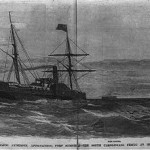
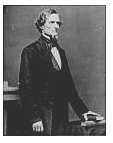
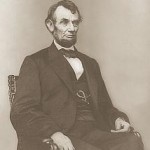
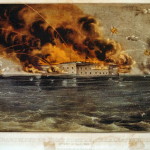
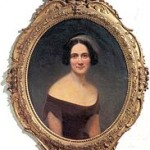
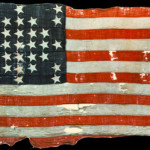
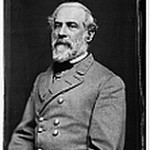
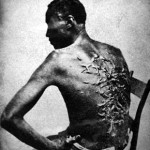
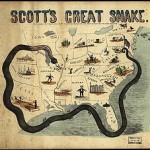
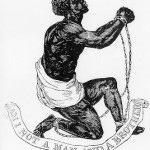
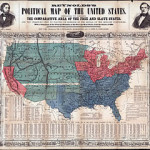
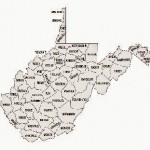
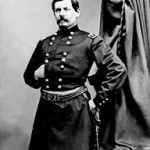
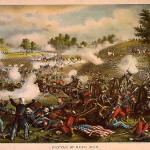
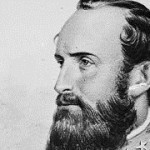
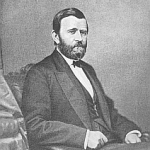
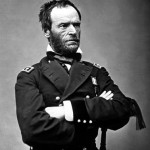
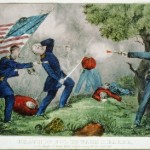
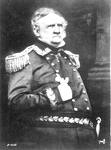
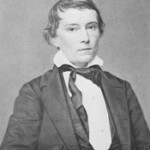
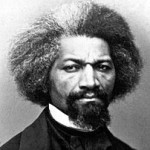

With havin so much content do you ever run into any problems of plagorism or copyright infringement?
My site has a lot of completely unique content I’ve
either written myself or outsourced but it seems a lot of it is popping it up all over the internet
without my authorization. Do you know any methods to help prevent content from being stolen? I’d
certainly appreciate it.
Content theft is a threat for any website/blog. I dealt successfully with one content pirate a couple of years ago. See if Copyscape can be of help to you.